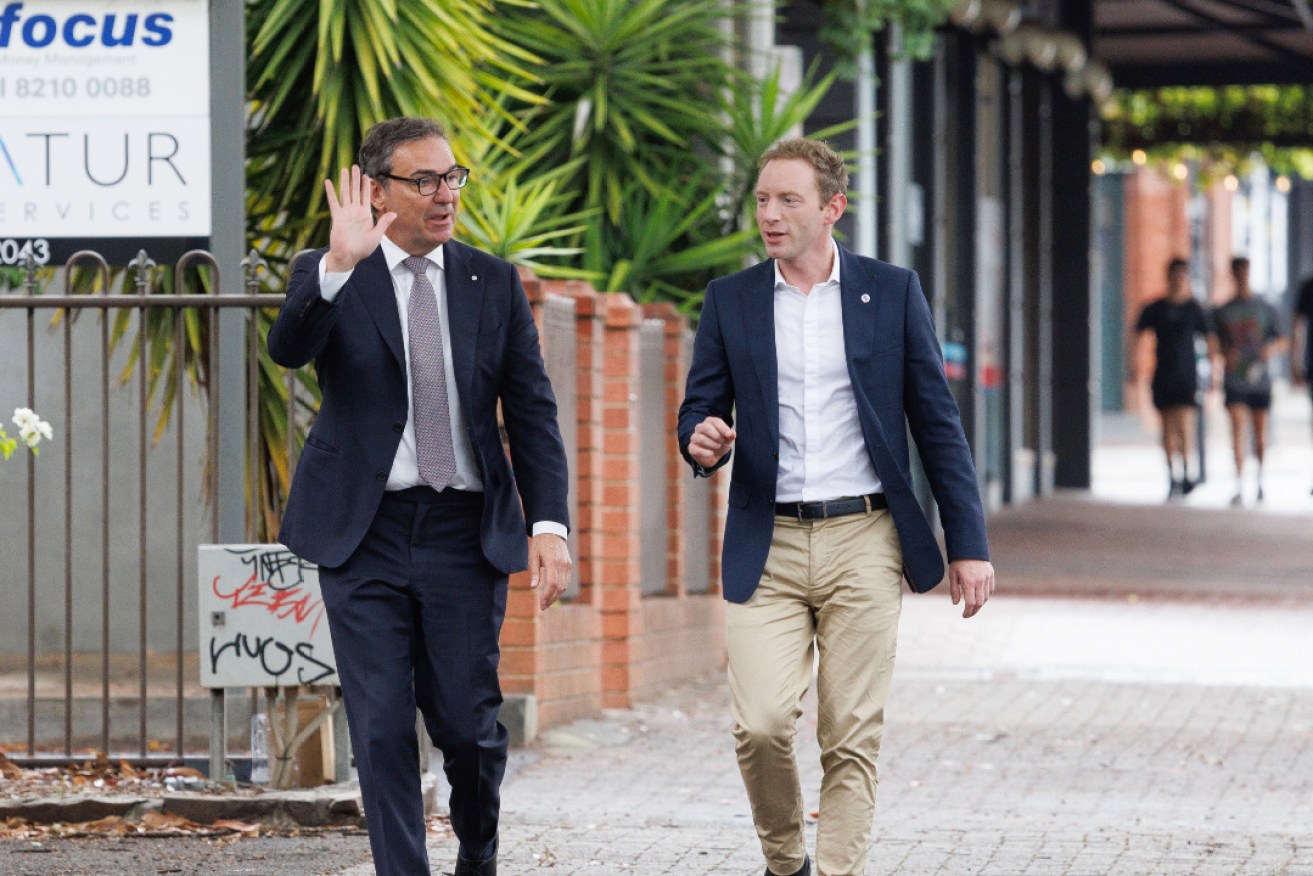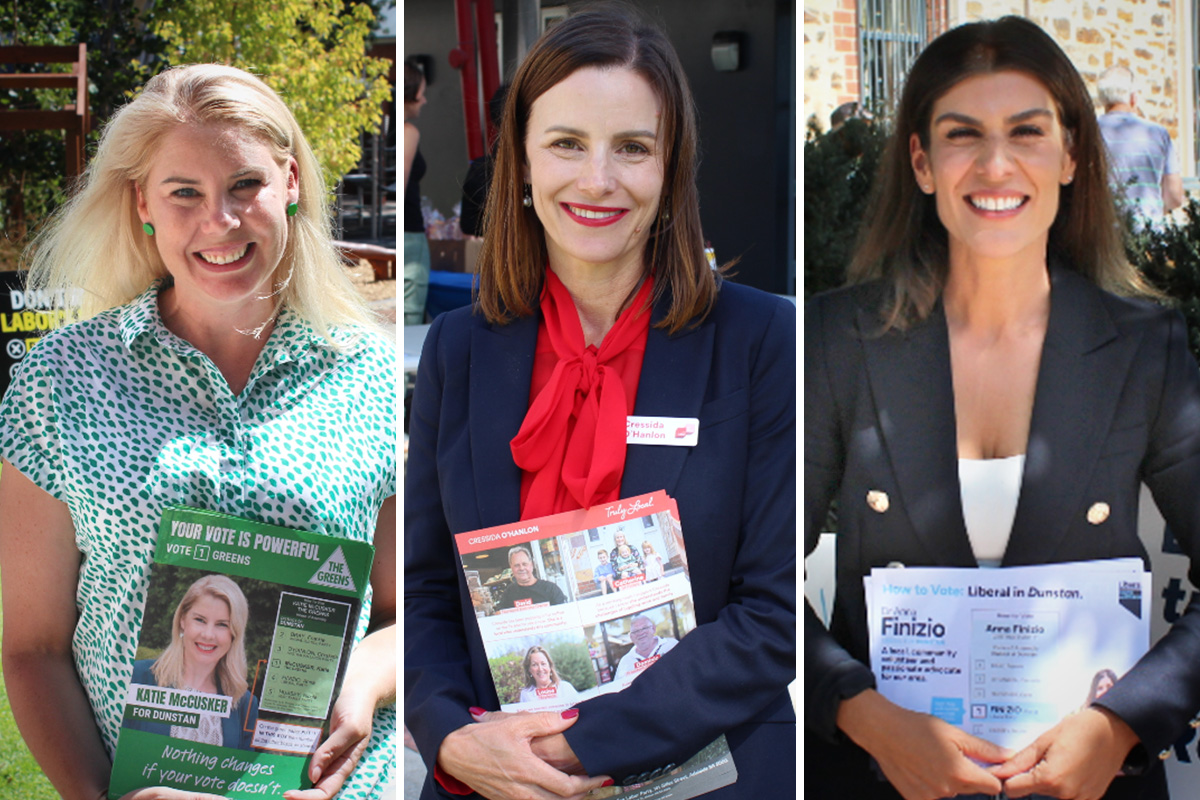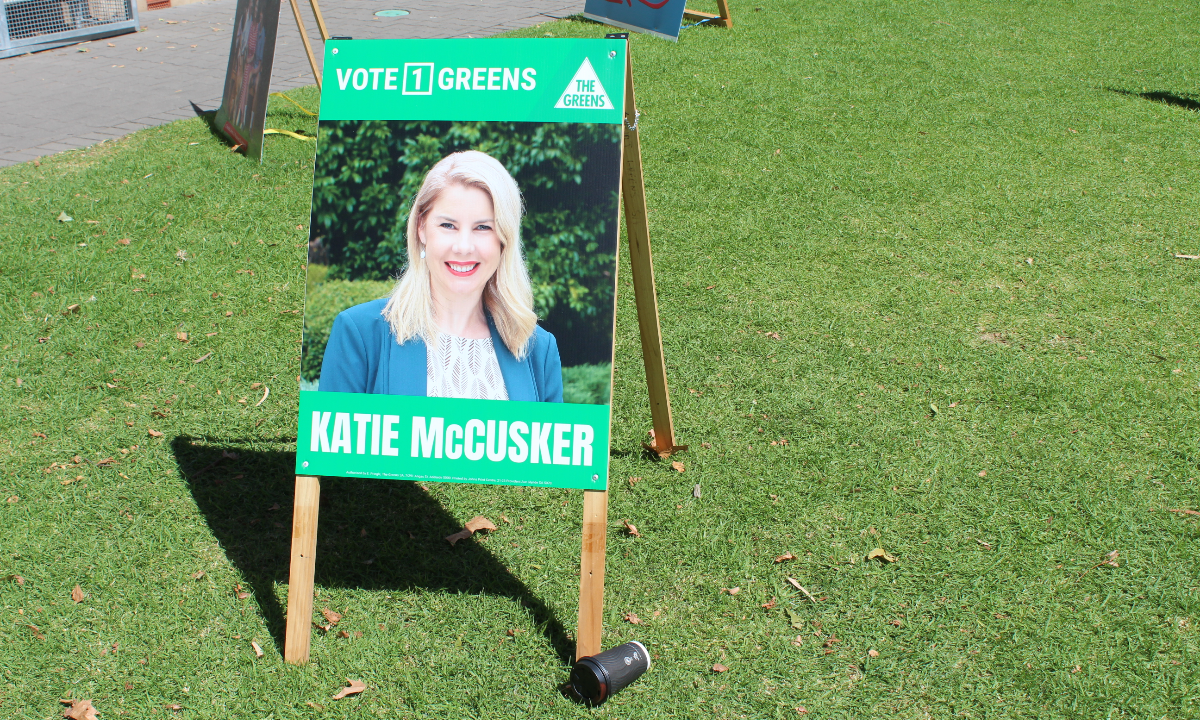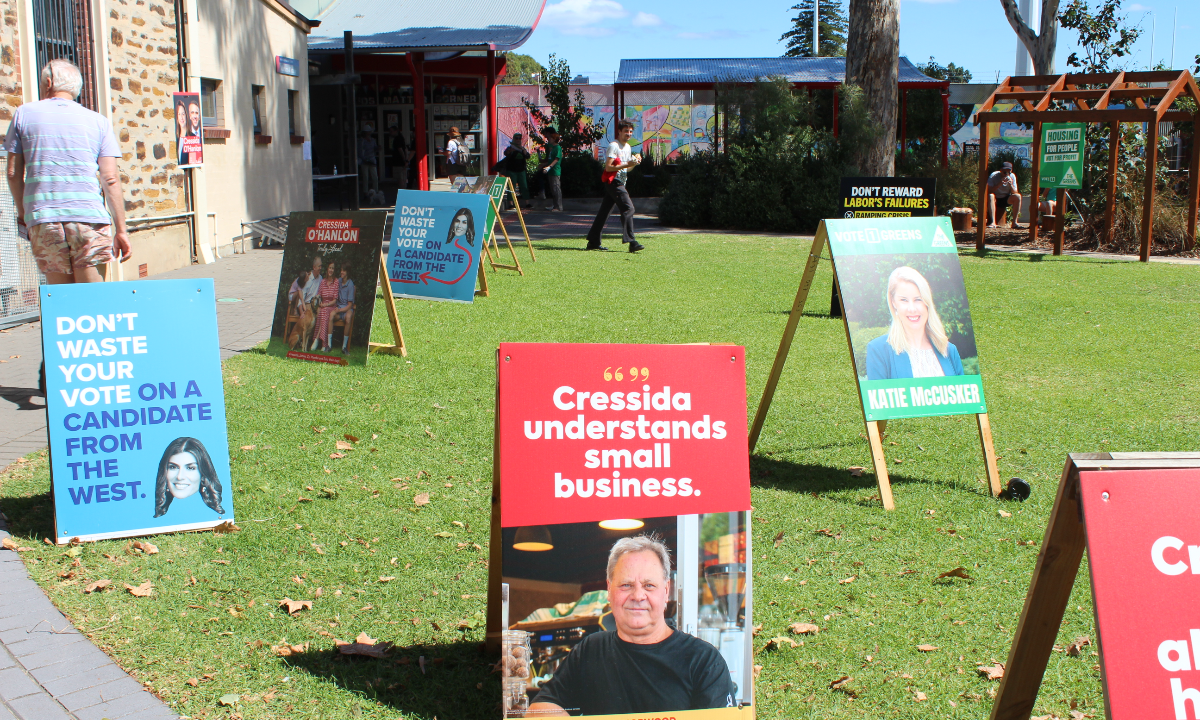Speirs says he won’t step down after likely Dunstan by-election loss
Liberal leader David Speirs says he’ll stay on in the job after gauging support from his party in the wake of the weekend by-election and potential loss of former Premier Steven Marshall’s seat to Labor.


Liberal leader David Speirs took over after Premier Steven Marshall lost government in 2022 and says he'll stay on despite the likely loss of the retired Marshall's seat to Labor at the Dunstan by-election. Photo: Tony Lewis/InDaily
The state’s most marginal seat, held by just 0.5 per cent at the March 2022 election, was up for grabs when Marshall resigned as MP earlier this year after serving 14 years.
Marshall retained Dunstan by just 260 votes in 2022 against Labor’s Cressida O’Hanlon, who was again Labor’s candidate this by-election against Liberal newcomer Anna Finizio.
O’Hanlon on Saturday received a 3.4 per cent two-party preferred swing to Labor, which – coupled with the preference flow from a strong 8 per cent swing to the Greens via candidate Katie McCusker – looked to be on track for a win. No victory was declared or conceded at the weekend with the SA Electoral Commission on Monday beginning its count of more than 8000 postal and pre-poll votes.
Speirs on Saturday night apologised to Liberal Party supporters, saying the result was “not looking that promising”.
If O’Hanlon is confirmed as the winner, the Opposition will have just 14 Lower House seats compared to the Malinauskas Government’s 28.
But after neither he nor Finizio fronted the media on Sunday, Speirs on Monday said that he would not step down as Opposition Leader.
“I’ll be staying in this job,” he told ABC Radio Adelaide.
“I canvassed many of my colleagues over the last 48 hours since what is clearly not a good result in the Dunstan by-election for our party, and my colleagues were firmly in support of me continuing in this role.”
Speirs said that he would however use the Dunstan result as “as a reason to take control of some things within the party, drive a different approach to perhaps the way the party is run”, suggesting the party would consider formalising factions, with the moderates and conservatives engaged in a bitter internal power struggle.
“There needs to be a level of rigour and discipline to the way that the different groups within the party operate,” Speirs said.
“The Labor party have a much more structured approach and I think we should look at that.”
Speirs suggested he was the best person to lead such a reform.
“If that was something that was looked at, the person who could do it is an un-factional, unaligned leader,” he said.
“I think that will create discipline and some people criticise factionalism within parties but actually it can create an opportunity for a broader discussion of different ideas and appeal to different people.”
Asked how having more control over the Liberal Party’s campaign could have helped, Speirs said that in the pre-poll process there “was a surge to the Greens we hadn’t noticed”.
“That hadn’t come through in other research, but there was definitely a surge to the Greens you could pick it up in the pre-poll – I think we should have countered that, and we didn’t do that,” he said.
“I think both major parties need to take a good look at the surge for the Greens. Both major parties had a drop in their primary vote; ours was bigger than Labor’s, so we do need to take a good look at holding the Greens to account for their policy positions which many people I don’t believe are aware of.”

L-R: Greens candidate Katie McCusker, Labor candidate Cressida O’Hanlon, Liberal candidate Dr Anna Finizio. Photos: David Simmons/InDaily.
The Greens swing
The swing to the Greens identified in the pre-polls translated on the day.
Of the votes counted so far, Katie McCusker picked up 22.4 per cent of first preference votes in Dunstan.
Preference flows mean Labor’s O’Hanlon will be the beneficiary of voters turning out for the Greens, and will likely mean Labor will win the by-election.
Speirs said it was reasonable to assume voters chose the Greens as a protest vote and didn’t see the Liberal Party as a viable option.
“I think the voters, perhaps because of the negativity in the campaign… didn’t quite want to move to us,” he said.
McCusker ran her campaign on local issues, telling voters at a community forum last week that she would commit to greening Dunstan with more tree coverage, would get the park lands onto the state heritage list, and had great concerns for social housing.
Meanwhile, Labor and the Liberals worked hard to undermine each other’s candidates. Finizio had her CV published in The Advertiser after Labor handed over a job application she once made for a position in then-opposition legal affairs spokesman Kyam Maher’s office, while the Liberal Party raised questions in parliament about O’Hanlon’s integrity.

Photo: David Simmons/InDaily.
InDaily asked voters on Saturday what they thought about the major parties’ campaign tactics.
“The mudslinging matches really put me off Labor – I thought that was the lowest of the low,” said one voter.
“I’m not interested in mudslinging matches, I’m interested in policies that they’re putting forward. I think that’s been absolutely disgraceful.”
Another said ramping and cost-of-living pressures were their top priorities when considering who to vote for.
Hospital ramping was the biggest issue for another voter, who said she was “Quite frankly, really pissed off”.
“It’s very hard to know who to vote for,” she said.
“The promise has not been responded to and I think the hospital ramping is disgraceful.”

Photo: David Simmons/InDaily.
Greens Senator Sarah Hanson-Young said the party ran on local issues.
“The volunteers were all members of the local community, who wanted a better voice in Parliament, and the proof is in the pudding,” she said.
“Sitting here and listening to both the leader of the Government and the Opposition trying to excuse away the fact that they just lost touch with the people of Dunstan – the mudslinging exposed that.”
Premier Peter Malinauskas responded that the Greens “don’t enjoy the same level of scrutiny that the major parties of government do, and I think that’s to their advantage”.
“I think that as their vote has gone up, that will demonstrate that there is a need to have a healthy discussion about policy differences.”




